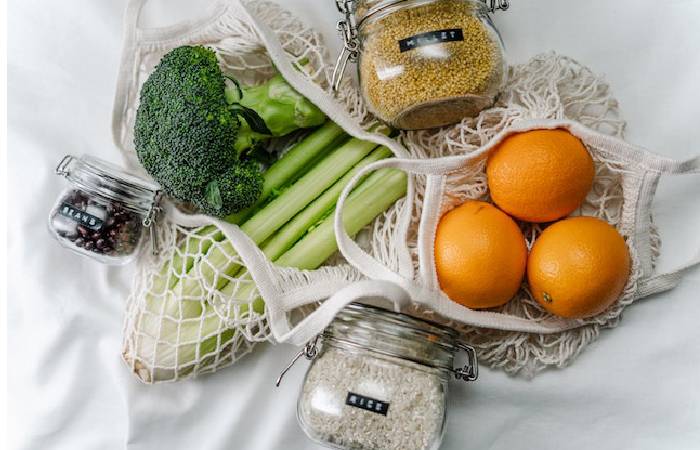Vitamin for Skin – Your skin needs the right balance of nutrients to do its primary job: a barrier that protects the rest of your body from outside elements. To help your skin stay beautiful, functional, and feel great, nourish from the inside.
Vitamin for Skin – Get the Right Vitamins
Taking care of your skin should be an essential part of your health regimen. It is, after all, the largest organ in your body. Most healthcare professionals will first tell you to keep your skin healthy is to limit your exposure to the sun’s harmful ultraviolet (UV) rays and using sunscreen when in the sun.
But the sun is not harmful at all. Just 10-15 minutes of daily exposure helps produce vitamin D throughout the skin. It is one of the best vitamin for the skin, along with vitamins C, E, and K Make sure you get enough vitamins to keep your skin healthy and youthful. This could result in a reduction of black spots, redness, wrinkles and excessive dryness.
Vitamin for Skin – Vitamin A

Both the top and bottom layers of the skin need vitamin A. It appears to prevent sun damage by interrupting the process of collagen breakdown. Since it’s an antioxidant, it may protect your skin against sunburn (but not as much as wearing sunscreen).
It helps the sebaceous glands around hair follicles to function and can also help heal cuts and scrapes, especially if you’re taking steroids to reduce inflammation. Without enough vitamin A, your skin can become dry, itchy, or bumpy.
Good Sources of Vitamin A
Yellow, red and green (leafy) vegetables, such as spinach, carrots, sweet potatoes and red peppers. Yellow fruit, such as mango, papaya and apricots.
Vitamin for Skin – Vitamin C
Think “C” for collagen: This vitamin helps writhing protein tissue retain its shape. It’s also a powerful antioxidant, protecting you from free radicals and possibly reducing your risk of skin cancer. Low levels of it can easily cause bruising and bleeding gums, as well as slower healing wounds.
Good Sources of Vitamin C
Oranges, peppers, strawberries, broccoli, blackcurrants, brussels sprouts and potatoes.
Vitamin for Skin – Vitamin D
Vitamin D is most frequently formed when the skin absorbs sunlight. Cholesterol is converted into it when this happens. The liver and kidneys then absorb it and transport it throughout the body to help create healthy cells. This includes the skin, where vitamin D plays an essential role in skin tone. It can even help treat psoriasis.
Good Sources of Vitamin D
Eat fortified foods like breakfast cereals, orange juice, and yoghurt.
Vitamin E
This antioxidant and anti-inflammatory can also absorb the energy of ultraviolet light, which damages the skin and leads to wrinkles, sagging and skin cancer. Works with Vitamin C to strengthen cell walls
Good Sources of Vitamin E
Wheatgerm oil, soybean oil, sunflower seeds, almonds, peanut butter, spinach, pumpkin and red bell pepper.
Essential skin vitamins are available in supplement form and originate in skin care products. Learn more about these four essential vitamins and how they can help you achieve optimal skin health.
Healthy Fats
This is how your skin gets its “glow”. Too little fat in your diet can make your skin look wrinkled and dry. Focus on monounsaturated and polyunsaturated fats from plants like nuts, seeds, avocados, and fish. These help your skin stay hydrated, firm, and supple and are better for your heart than saturated fat.
Omega-3 fatty acids are polyunsaturated fat that your body cannot make but needs to build cell walls. They also block a chemical that allows skin cancer to grow and spread and can reduce inflammation.
Proteins
Your body converts the proteins you eat into building blocks called amino acids and reuses them to make other proteins, like collagen and keratin, that make up the structure of your skin. It also help remove old skin. Certain amino acids are antioxidants that protect skin cells from UV rays and “free radicals” produced when the body breaks down certain foods or is around cigarette smoke.
Zinc
The outer layer of your skin contains five times more of this mineral than the bottom layer. Zinc helps skin heal after injury. It is needed to maintain the stability of cell walls and for cells to divide and specialize as they grow.
Zinc can protect skin from UV damage due to its behaviour compared to other metals in your body, such as iron and copper. It also acts as an antioxidant. Too little zinc may look like eczema, but the itchy rash won’t improve when you apply moisturizers and steroid creams.
Selenium
It is a mineral that helps certain antioxidants protect the skin from UV rays. Its deficiency has remained related to an increased risk of skin cancer.
Conclusion
Vitamin for skin: Talk to your doctor if you’re concerned you’re not getting enough essential nutrients in your diet to ensure supplements aren’t affecting your health in other ways. Fish oil is a source of omega-3, for example, but taking it may not be a good idea if you’re taking blood thinners or have a weakened immune system. Zinc supplements can make some antibiotics less effective.


